
My brand new website is going live! Stay tuned for my blog, research, teaching, outreach, service, collaborations, and awards — all in a single place!

The Cloud Alchemist is a cutting-edge software platform, developed as a spin-off from the University of Cagliari. It utilizes advanced (semi-)automatic artificial intelligence models and tools to monitor and optimize costs associated with corporate cloud infrastructures in areas not covered by standard services from cloud computing providers. The spin-off has received various commissions from medium-sized and large companies and its development has been funded by the Autonomous Region of Sardinia, with a grant of €100,000.
As the Coordinator of the "User Modeling" Research Unit at the Department of Mathematics and Computer Science, I oversee a team of over 12 members, including postdoctoral fellows, doctoral students, and research assistants. The unit engages in both national and international collaborations, leading to several publications, scientific tutorials and workshops, special issues, and granted projects. In addition to my research role, I contribute to the "Applied Computer Science and Data Analytics" Bachelor's degree program by serving on various committees (Equal Opportunity, School Orientation, Teaching, and Student Affairs) and giving the "Deep Learning" course.
I contributed to advancing digital education and vocational training in Switzerland within the Machine Learning for Education Lab, led by Prof. Tanja Kaser. The research findings have been published in prestigious conferences, including EDM 2021 (Best Student Paper and Best Presentation Awards), EDM 2022, AIED 2022, and LAK 2023. Additionally, I mentored over ten graduate and doctoral students and played a key role in drafting successful funding proposals, including SCESC, a Flagship project funded by Innosuisse.
Supervised by Prof. Nasir Memon and Dr. Pawel Korus, my research focused on analyzing, developing, and evaluating attacks against biometric systems based on voice recognition, with an emphasis on dictionary attacks using adversarial neural networks. During this period, I got accepted with a paper at INTERSPEECH 2019. This work laid the foundation for subsequent research conducted remotely with the same NYU's members, culminating in the publication in the IEEE Transactions on Information Forensics and Security.
Under the supervision of Prof. Modesto Castrillon-Santana, my research concentrated on collecting multimodal biometric datasets and benchmarking deep learning algorithms and models for biometric recognition using voice and face in human-robot interaction contexts. This work was accepted at ICPRAM 2019 and provided foundation for further research conducted remotely with the same university, whose results were subsequently published by Springer as one of only seven papers selected for extension from ICPRAM 2019.
Within one of the largest industrial technology providers in Catalonia, under the supervision of Dr. Ludovico Boratto and Dr. David Laniado, I contributed to the European DECODE project, focusing on the analysis, development, and evaluation of multimodal data mining and visualization techniques for various use cases, with a particular emphasis on decision support systems for citizens. This research culminated in the publication of a demo paper, which received a honorable mention, at WWW 2018.
I led research on machine learning for indexing, recommendation, identity verification, and opinion mining primarily for educational platforms. I published three large-scale datasets and over seven state-of-the-art models utilizing text, speech, images, and time series. My work was published in more than five top-tier conferences (such as INTERSPEECH 2019 and ECIR 2019) and journals (such as Elsevier's PRLetters and CiHB). I contributed to five deliverables across two EU/EU-MIUR projects and mentored six BSc / MSc students.
I completed my Master’s degree with the maximum grade of 110/110 (cum laude), achieving the highest score (30/30) on all exams, with all but one being awarded cum laude. I earned the degree in just one year and a half (instead of two). My MSc thesis proposing a new learning dashboard was presented at a peer-reviewed conference. I was recognized as the Best Student of the Faculty of Science.
I completed my Bachelor’s degree with a grade of 110/110 (cum laude), achieving the highest score on all exams, with all but one being awarded cum laude. I was recognized as the Best Third-Year Student of the Computer Science BSc Programme.

The PHaSE project is focused on promoting healthier and more sustainable eating habits. While we all know that eating healthy is important for our well-being and disease prevention, there is a growing need to consider the impact of our food choices on the environment. To help guide people towards making better food choices, the project will combine two powerful tools: recommender systems and conversational agents. Recommender systems are already known for influencing users' choices and helping them make better decisions. When combined with conversational agents, which allow users to interact using natural language, the effectiveness of these recommendations can be greatly enhanced. The project will develop innovative methods that integrate natural language generation, question answering, and recommendation algorithms into a conversational agent. This agent will enable users to ask questions about the healthiness and sustainability of recipes, find sustainable ingredient substitutes, and receive personalized recommendations for healthy and sustainable recipes tailored to their needs. The system will use persuasive dialogue strategies to make the recommendations more convincing and transparent. The effectiveness of this approach will be tested through a study involving users, aiming to raise awareness and perceptions about responsible food consumption.
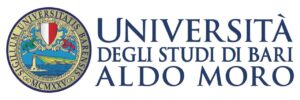
The University of Bari Aldo Moro is a public higher education institution founded in 1925, with a student population of around 60,000. Their role in the PHaSE project involves applying natural language processing and developing the conversational agent.

The University of Cagliari, the largest in Sardinia with over 25,000 students and 1,900 staff, is a major regional hub for higher education and research. Their role in the PHaSE project involves designing and developing recommendation algorithms that will be integrated into the conversational agent.
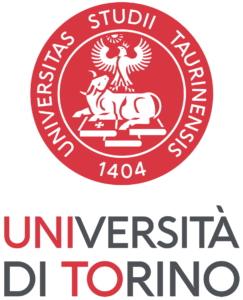
The University of Turin is a public research university in the city of Turin, with a population of about 80,000 students. Their role in the PHaSE project the co-design and evaluation of the solution, drawing on their experience in multidisciplinary projects that focus on the assessment and co-design of interacting systems and conversational agents.
I am involved in creating graphs that integrate information about recipes and their health and sustainability values, as well as citizens' interactions with these recipes. Using this data, I am supporting the development of language models which perform path reasoning over the graph to offer both recommendations and explanations.
The project has been funded by Italian Ministry of University and Research under the PRIN 2022 program - CUP H53D23003530006.


The EDVANCE project aims to deliver high-quality digital education to university students and workers nationwide, addressing barriers related to location, social conditions, family or work situations. It will use online and blended learning strategies with micro-credentials to support inter-university pathways and academic recognition of online courses. The focus is on enhancing advanced digital skills with a transdisciplinary approach, including data management, artificial intelligence, and digital sustainability, integrating these with economic, social, and creative fields through collaboration with educational institutions and industry partners. The quality of MOOCs will be ensured through guidelines and tools based on artificial intelligence, with continuous monitoring. To ensure future sustainability and involvement from all universities, a digital ecosystem will be developed with a central hub portal, integrating university MOOC platforms and managing micro-credentials to create an accessible and cohesive learning environment.

The Accademia di Belle Arti di Bologna is a prestigious institution renowned for its art education and creative training. It offers a range of programs that cultivate artistic talent and critical thinking.

The Accademia di Belle Arti di Venezia is celebrated for its fine arts programs and historical significance in art education. It provides comprehensive training in visual arts, fostering both traditional and contemporary skills.

Bocconi University in Milan is a leading institution specializing in economics, management, and finance. Known for its rigorous academic programs, it is highly regarded for its research and industry connections.

Ca' Foscari University of Venice excels in humanities, social sciences, and environmental studies. It combines a rich academic tradition with innovative research initiatives.

The Conservatorio di Musica di Cagliari is a prominent music conservatory known for its exceptional music programs. It offers in-depth training in performance, theory, and composition.

Humanitas University is dedicated to health and biomedical sciences, focusing on innovative medical education. It is renowned for its research and clinical training in the healthcare sector.

The Milano Civica Scuola di Musica is an esteemed institution for music education in Milan. It provides high-quality training in various musical disciplines, promoting artistic excellence.

Politecnico di Milano is a top technical university recognized for its excellence in engineering and architecture. It is renowned for its cutting-edge research and strong industry connections.
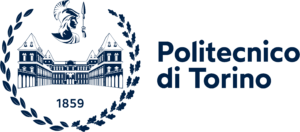
Politecnico di Torino is distinguished for its expertise in engineering and technological innovation. It is a leader in research and development, with a strong focus on applied sciences.
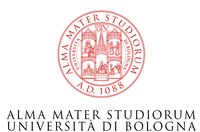
The University of Bologna is one of the oldest universities in Europe, known for its rich academic heritage. It offers a diverse range of programs and is a hub for research and innovation.

The University of Cagliari is the largest institution in Sardinia, serving over 25,000 students and 1,900 staff. It is a key regional center for higher education and research across various disciplines.

The University of Macerata is known for its strong emphasis on cultural and social sciences. It offers a broad range of academic programs with a focus on interdisciplinary research.
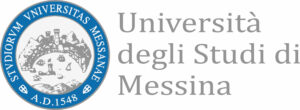
The University of Messina offers a wide range of academic programs and is recognized for its commitment to research and education. It plays a significant role in the regional development of higher education.
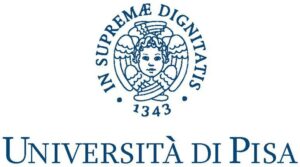
The University of Pisa is renowned for its historical significance and strong focus on scientific research. It is a leading institution in Italy, known for its academic excellence and innovative research.

The University of Trento is a prestigious institution known for its high-quality research and academic programs. It is recognized for its contributions to various fields and its innovative teaching approaches.

The University of Turin is a prominent institution offering a broad range of academic programs. It is well-regarded for its research activities and strong academic traditions.
I am leading three local units: one focused on developing the learning management system, another on selecting and implementing supportive learning tools, and a third on applying artificial intelligence tools to assist learners and teachers. For the latter, I am specifically leading research on conversational interfaces powered by large language models.
The project has been funded by the National Recovery and Resilience Plan (NRRP), specifically through Mission 4 "Education and Research", Component 1 "Enhancement of Educational Services: from Nursery Schools to Universities", Investment 3.4 "University Teaching and Advanced Skills", and Sub-Investment 3 "Digital Education Hubs (DEH)".
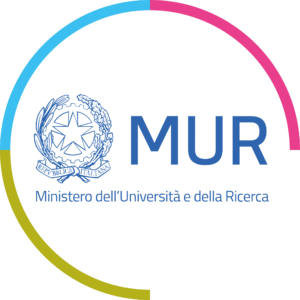



The project seeks to integrate business and scientific research, address the social impacts of the crisis, and enhance regional inclusivity in Sardinia. It aims to foster innovation, facilitate technology transfer, engage local communities in sustainable development, and transition the region towards a knowledge-based economy. The ecosystem is managed by a central Hub and is structured around 10 thematic Spokes, each representing a core sector of Sardinian scientific inquiry: medicine, tourism and cultural heritage, agriVet, finance and credit, aerospace, energy, digital transformation, mobility, environmental goods, and biopharmacology. Specifically, Spoke 6 is dedicated to advancing the research and implementation of advanced digital transformation models within Sardinia, promoting collaboration between researchers and local stakeholders to ensure enduring regional benefits. This Spoke involves applied research tailored to local requirements, aiming to stimulate entrepreneurial growth, and produces an innovation hub along with a suite of digital technologies. It addresses multiple application domains, including urban technologies, tourism, manufacturing, healthcare, lifelong learning, aging, and quality of life.

The University of Cagliari is the largest institution in Sardinia, serving over 25,000 students and 1,900 staff. Their role in the eINS Spoke 6 project involves creating and experimenting with intelligent methods for responsible social systems, personalized learning, immersive tourism, pervasive healthcare, and reliable production.

Accenture is a global professional services company with advanced capabilities in digital, cloud, and security. Their role in the eINS Spoke 6 project involves building research spaces, managing digital infrastructure for prototyping, developing advanced digital prototypes, and engaging in targeted communication and dissemination activities.
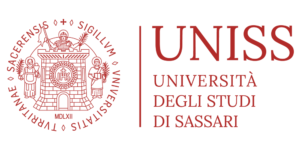
The University of Sassari, a public institution founded in 1562 and based in Sassari, Italy, is organized into 13 departments and serves around 2,000 students. Their role in the eINS Spoke 6 project involves developing pervasive prediction and intervention frameworks aimed at enhancing quality of life for aging populations.
I am leading a local unit focused on digital transformation in lifelong learning. My guidance role spans from identifying key educational scenarios, contexts, and needs to developing innovative approaches and tools for competence development and personalized learning based on knowledge graphs and language models.
The project has been funded the National Recovery and Resilience Plan (NRRP), Mission 4 Component 2 Investment 1.1 - Call for tender No. 3277, published on December 30, 2021, by the Italian Ministry of University and Research (MUR), funded by the European Union – Next Generation EU. Project Code ECS0000038 – Project Title eINS Ecosystem of Innovation for Next Generation Sardinia – Grant Assignment Decree No. 1056 adopted on June 23, 2022, by the MUR - CUP F53C22000430001.



EDVANCE
e.INS
PHaSE

I’m excited to share that my new website dedicated to my research and academic work will be launching soon! The upcoming site will feature an updated look, streamlined access to my publications, and the latest updates on my research projects. This platform aims to enhance the accessibility and presentation of my work, providing valuable resources and insights for the research community. Stay tuned for the launch and visit to explore the new features and content!
Stay tuned for more information!
Stay tuned for more information!
Stay tuned for more information!
Stay tuned for more information!
Stay tuned for more information!
The University of Cagliari is a leading institution with international expertise in computer science, particularly in the field of artificial intelligence. Our research unit consistently publishes in top-tier journals and presents at highly-ranked conferences, reflecting our commitment to advancing the field. We are also involved in spin-offs that offer students hands-on, business-oriented experience, and we maintain active collaborations with numerous universities, research institutes, and companies. You will have the opportunity to attend international conferences and schools, where you can present your research. You will have access to extensive computing resources with NVIDIA A6000 and A30 GPUs.
Situated in Cagliari, the capital and largest city of Sardinia, Italy, our university offers a combination of academic excellence and exceptional quality of life. Nestled on the stunning Mediterranean coast of southern Europe, Cagliari is a vibrant and culturally rich city, renowned for its picturesque historical districts, sophisticated shopping streets, and breathtaking panoramic terraces. The city enjoys a warm Mediterranean climate year-round and boasts connectivity, with an international airport a quick 5-minute train ride.
Responsibilities:
- Conduct novel research concerning responsible artificial intelligence.
- Provide guidance and mentorship to junior researchers and research unit members.
- Contribute to applied research projects related to responsible artificial intelligence.
- Participate in the writing of articles and of other documents related to research activities.
- Participate in teaching tasks, such as course assistance and student supervision.
- Support the logistic activities of the research unit.
Qualifications:
- Has, or is in the process of getting, a doctoral degree in machine learning or related fields.
- Proven track record of grants, fellowships, patents, and first-authored publications.
- Experience solving complex problems and comparing alternative solutions, tradeoffs.
- Interpersonal experience working and communicating cross functionally in a team.
- Research and hands-on experience in machine learning, pattern recognition, data mining.
- Relevant experience using frameworks such as PyTorch, TensorFlow or equivalent.
- Communication ability to convey complex research findings clearly and succinctly.
- Authorization to work in the country of employment during the employment.
Duration:
1-year fixed term, with the possibility of annual renewal for up to a total of 6 years.
Gross Annual Salary:
€ 23,000 to € 25,000 per year.
Responsibilities:
- Participate in cutting edge research aiming to solve fundamental machine learning problems.
- Lead the assigned project by designing, implementing and evaluating innovative solutions.
- Collaborate with the unit's members to facilitate development from ideation to implementation.
- Disseminate your research results through the production of publications, datasets, and code.
Qualifications:
- Second- or third-year doctoral student in machine learning or related computational field.
- Publications at top tier artificial intelligence conferences and/or journals.
- Strong ability to quickly prototype while keeping the code readable and documented.
- Communication ability to convey complex research findings clearly and succinctly.
- Authorization to work in the country of employment throughout the duration of employment.
Duration:
3 to 12 months depending on individual needs and progress in the current doctoral program.
Gross Annual Salary:
Unpaid internship (with compensation provided by your home university).
Responsibilities:
- Conduct research to advance the science and technology of intelligent systems.
- Develop and enhance computational methods for understanding and representing data.
- Contribute to the progress of relevant research communities through high-quality publications.
- Collaborate on and drive productivity in existing research projects.
Qualifications:
- Master’s degree in a technical field such as computer science and applied mathematics.
- Proficiency in at least one programming language (Python preferred).
- Good knowledge of machine learning concepts and techniques.
- Authorization to work in the country of employment throughout the duration of employment.
Duration:
3-year fixed term, with the possibility of a 6-month extension in exceptional cases.
Gross Annual Salary:
€ 16,000 to € 17,000 per year, with a 50% increase during months (at least 6) spent abroad.
Responsibilities:
- Assist in conducting research in responsible artificial intelligence.
- Support the development of models and algorithms under the guidance of senior researchers.
- Document research findings and methodologies for internal and external stakeholders.
- Collaborate with unit's members to integrate artificial intelligence solutions into products.
Qualifications:
- Bachelor's or Master’s degree in a technical field like computer science and applied mathematics.
- Experience in deep learning, with a portfolio of projects (and publications, if available).
- Proficiency in programming such as Python, and frameworks, such as TensorFlow and PyTorch.
- Self-motivated with the ability to conduct high-quality work independently.
- Strong analytical and problem-solving skills.
- Excellent written and verbal communication skills.
- Passion for staying current with the latest artificial intelligence research and advancements.
Duration:
3 to 18 months depending on the needs of the corresponding project.
Gross Annual Salary:
€ 1,200 to € 1,500 per month, depending on expertise. Part-time options are typically available.
Responsibilities:
- Assist in conducting research in responsible artificial intelligence.
- Support the development of models and algorithms under the guidance of senior researchers.
- Document research findings and methodologies for internal and external stakeholders.
- Collaborate with unit's members to integrate artificial intelligence solutions into products.
Qualifications:
- Second- or third-year Bachelor's or Master's student in computer science or related field.
- Proficiency in programming such as Python, and frameworks, such as TensorFlow and PyTorch.
- Self-motivated with the ability to conduct high-quality work independently.
- Strong analytical and problem-solving skills.
- Excellent written and verbal communication skills.
Duration:
3 to 5 months (300 to 375 hours) depending on needs and progress in the study program.
Gross Annual Salary:
Unpaid internship (as the activity is part of the study programme).
Responsibilities:
- Participate in cutting edge research aiming to solve fundamental machine learning problems.
- Lead the assigned project by designing, implementing and evaluating innovative solutions.
- Collaborate with unit's members to facilitate swift development from ideation to implementation.
- Disseminate your research results through the production of publications, datasets, and code.
Qualifications:
- Second- or third-year Bachelor's or Master's student in computer science or related field.
- Proficiency in programming such as Python, and frameworks, such as TensorFlow and PyTorch.
- Self-motivated with the ability to conduct high-quality work independently.
- Strong analytical and problem-solving skills.
- Excellent written and verbal communication skills.
Duration:
3 to 5 months depending on individual needs and progress in the current study program.
Gross Annual Salary:
Unpaid internship (as the activity is part of the study programme).